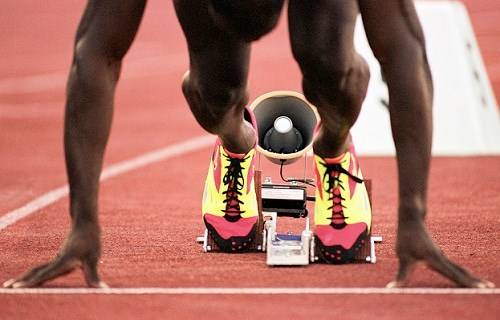Play the Game 2015: A new World Code against doping: Anybody willing to comply?
The sessions are mainly scheduled on Sunday, Monday and Tuesday and will feature some of the most prominent speakers and topical subjects within the field of anti-doping putting spotlight on some of sports’ many challenges establishing an efficient and credible system fighting doping globally.
Doping investigators challenge WADA
After some years outside the spotlight, international track & field and its world governing body, IAAF, has been hit with double force by doping allegations: A number of TV documentaries and news reports have accused the IAAF of protecting dopers while also blackmailing them into keeping quiet about their knowledge thereof.
At this year’s conference, doping takes a prominent place. Unfortunately, the Russian whistle-blowers former 800m runner Yuliya Stepanova and her husband Vitaliy Stepanov, a former anti-doping official, decided to pull out from Play the Game 2015 due to concerns over their personal safety. They feel threatened because of their testimony to a documentary that aired on German TV in the beginning of this year.
Instead the story about the allegedly corrupt practices in Russian and international athletics is told by German journalist Hajo Seppelt, the reporter behind the revealing documentary. Also the IAAF is invited to respond to the allegations, but their participation is uncertain as this programme goes to print.
WADA’s cruise in stormy waters
Russia has been singled out for demonstrating double standard, but is it fair to pick at one country in a world where every nation tries to favour their own golden assets in sport? How can doping control ever be efficient if managed by countries and federations that have vested interests?
As director of WADA’s European office as well as of WADA’s relations with the international sports federations, Frédéric Donzé, will be able to give an account about what WADA does in order to overcome this dilemma and what challenges he sees in the current way of performing the anti-doping work.
Anti-doping pioneer returns to Play the Game
The correlation between the national and the international entities in sport and anti-doping will also be debated when Sandro Donati, is back at Play the Game after six years. Donati was one of the first to expose systematic doping practices when he worked for the Italian Olympic Committee, CONI, in the 1990s. His decision to go on early retirement some years ago has not kept him from continuing his detective work and assist Italian courts in their anti-doping proceedings.
An insider’s view of sports’ challenges
Richard W. Pound, former WADA president, member of the IOC and head of the WADA committee set down to investigate the allegations against the IAAF and Russia, is a regular visitor at Play the Game conferences. In 2013 Play the Game gave him the Play the Game Award for his willingness to engage in difficult discussions about issues in sports governance as well as in the anti-doping work.
At Play the Game 2015, Pound will as the longest serving IOC member will give a personal overview of the state of global sport, discuss the fight against doping in sport and share his assessment of what can be done to overcome the current challenges.
Cycling’s ongoing clean-up
Doping is still a hot potato when it comes to cycling and in an attempt to recover the trust in the sport, the new management of the UCI established a reform committee to look into the details around the Lance Armstrong case and the scandal-ridden years when doping has been revealed to have been an integral part of the sport.
As a representative of this group, the Independent Cycling Reform Commission (CIRC), Peter Nicholson from Australia will be able to add to the debate the experiences that cycling has done so far.
Michael Ask, director of Anti Doping Denmark, who have recently concluded a large investigation into the use of doping in Danish cycling will be representing the perspective of the national anti-doping agencies and shed a light on what their position and authorities can do in the fight against banned substances.
On top of this, Play the Game 2015 will also discuss the potential of the new World Anti-Doping Code to protect all athletes, in elite sport and in the fitness industry, against the pressure to enhance their performance with illegal drugs.
More information about Play the Game 2015
Play the Game 2015 takes place in Aarhus, Denmark from 25-29 October at the Marselis Hotel - Aarhus.
More about Play the Game 2015 on the conference website






